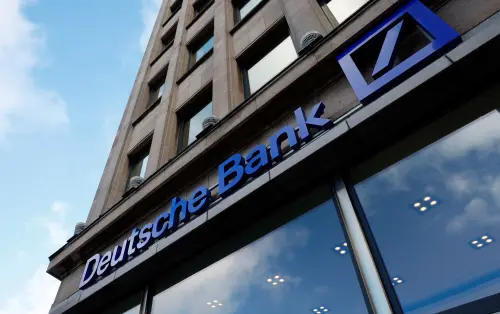Deutsche Bank has extended CEO Christian Sewing's contract, while its deputy and another top executive will depart as part of a management revamp, solidifying the leadership team of Germany's largest lender for the next phase of its turnaround.
The announcements come in a pivotal year as the bank strives to meet a series of ambitious targets. These changes will also impact the lender's global presence and help address a recent legal setback.
Sewing, who joined the bank as a teenager in the 1980s, ascended to the CEO position in 2018 after a tumultuous period marked by significant financial losses. During his tenure, he oversaw failed merger discussions with rival Commerzbank, implemented a strategy overhaul, and returned the bank to stable, albeit modest, profits despite some setbacks.
Sewing's new term as CEO will be his third and will extend until April 2029. He has already outlined potential adjustments to the bank's strategy for 2026 and beyond, including the possibility of closing some businesses, stating that "nothing is off limits."
James von Moltke, the deputy and chief financial officer since 2017, will depart after his term ends next year. Raja Akram will take over as CFO, joining from Morgan Stanley, where he served as deputy CFO since 2020. Additionally, board member Stefan Simon, who led the Americas and the bank's legal department, is leaving for personal reasons. Sewing expressed his gratitude to Simon, who recently mentioned on LinkedIn his pride in the bank's progress.
Fabrizio Campelli, who heads the investment bank, will assume regional responsibility for the Americas starting in May, succeeding Simon.
Since Sewing's leadership began, Deutsche's shares have approximately doubled, outperforming the Stoxx Europe 600 Banks index, which has risen by about 50% in the same timeframe. However, shares fell 2.5% in early trade. The bank announced it would initiate a buyback of 750 million euros in stock in April.
As Sewing pursues ambitious profit and cost targets, some analysts remain doubtful about the bank's ability to achieve all its goals. In January, Deutsche Bank reported that its fourth-quarter and full-year profit fell more than expected, with gains in investment banking revenue overshadowed by legal provisions and restructuring costs. The bank also retracted a key cost target.
Nevertheless, Germany's recent decision to relax longstanding restrictions on bank capital is seen as beneficial for both the lender and economic growth in Europe's largest economy, according to analysts at RBC.
The board changes were supervised by chair Alexander Wynaendts during a virtual supervisory board meeting on Thursday. This followed his recent tour to Beijing, Frankfurt, and Brussels, where he spoke at a conference.
Additionally, Theodor Weimer and Dagmar Valcarcel will not seek new terms on the supervisory board, as reported by Handelsblatt.
